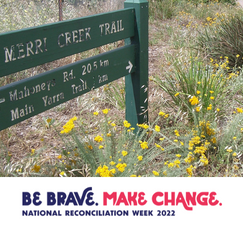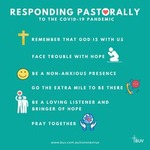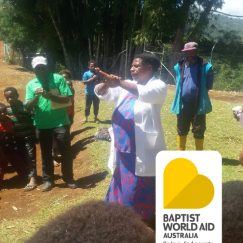11th August 2021
A Pastoral Reflection For Times Like This
Imagine a group of people facing the daily stress of pursuit by a deadly foe. Isolated from their loved ones and many of the familiarities of life. Unable to put their skills and energies to use. Suffering loss and grief.
Perhaps your mind went to the impacts of the Coronavirus at home or abroad. But I am referring to the situation recounted in 1Samuel 30. David and a group of battlers were being pursued by the murderous King Saul. They wanted to serve as mercenary troops, but were rejected by the Philistines – socially isolated, lives at risk, denied the opportunity to serve. Then suffering a terrible loss and plunging into grief.
Perhaps we can relate to their situation and gain some insights into how to live and serve as God’s people as we face the challenges of 2021. I invite you to reflect on 1Samuel 30 personally and perhaps as a group or congregation.
Three days later (after being rejected by the Philistines), when David and his men arrived home at their town of Ziklag, they found that the Amalekites had made a raid into the Negev and Ziklag; they had crushed Ziklag and burned it to the ground. They had carried off the women and children and everyone else but without killing anyone.[1]
What losses have you suffered in 2020-21? Make a list.
3 When David and his men saw the ruins and realized what had happened to their families, 4 they wept until they could weep no more. 5 David’s two wives, Ahinoam from Jezreel and Abigail, the widow of Nabal from Carmel, were among those captured. 6 David was now in great danger because all his men were very bitter about losing their sons and daughters, and they began to talk of stoning him.
How do you express your grief personally and as a group? Do you consider it appropriate for Christians to express sorrow and anger in the face of loss? Is God big enough to cope with your expressions of grief? Perhaps you might write a lament recognising your losses and grief.
But David found strength in the Lord his God.
What spiritual practices do you use to engage with God? How have you found strength in God during tough times? Which attributes of God are particularly significant for you during this time of change and challenge? Read Psalm 103 and highlight the statements that are hope-inspiring for you at the present time.
7 Then he said to Abiathar the priest, “Bring me the ephod!” So Abiathar brought it. 8 Then David asked the Lord, “Should I chase after this band of raiders? Will I catch them?” And the Lord told him, “Yes, go after them. You will surely recover everything that was taken from you!”
In what ways do you, personally or as a group, seek to discern God’s will? What do you believe God may be calling you to do at the present time?
9 So David and his 600 men set out, and they came to the brook Besor. 10 But 200 of the men were too exhausted to cross the brook, so David continued the pursuit with 400 men.
How are you feeling and how would you rate your energy levels? Do you need a rest? If you do, what are you doing to retreat and recharge? Is your church or ministry experiencing a reduction in volunteers? What are some practical things you could do to adapt to that?
11 Along the way they found an Egyptian man in a field and brought him to David. They gave him some bread to eat and water to drink. 12 They also gave him part of a fig cake and two clusters of raisins, for he hadn’t had anything to eat or drink for three days and nights. Before long his strength returned.13 “To whom do you belong, and where do you come from?” David asked him. “I am an Egyptian—the slave of an Amalekite,” he replied. “My master abandoned me three days ago because I was sick. 14 We were on our way back from raiding the Kerethites in the Negev, the territory of Judah, and the land of Caleb, and we had just burned Ziklag.” 15 “Will you lead me to this band of raiders?” David asked. The young man replied, “If you take an oath in God’s name that you will not kill me or give me back to my master, then I will guide you to them.”
Have you met some new people as you have journeyed through the recent changes and challenges? How might you serve them? What might they give to you?
16 So he led David to them, and they found the Amalekites spread out across the fields, eating and drinking and dancing with joy because of the vast amount of plunder they had taken from the Philistines and the land of Judah. 17 David and his men rushed in among them and slaughtered them throughout that night and the entire next day until evening. None of the Amalekites escaped except 400 young men who fled on camels. 18 David got back everything the Amalekites had taken, and he rescued his two wives. 19 Nothing was missing: small or great, son or daughter, nor anything else that had been taken. David brought everything back. 20 He also recovered all the flocks and herds, and his men drove them ahead of the other livestock. “This plunder belongs to David!” they said.
For us, these actions of David and his men are incongruous with being God’s people. But, what do the outcomes tell us about God? Read Ephesians 3:20-21 and 1Peter 5:10-11. How do these passages encourage us as we suffer losses and serve on mission?
21 Then David returned to the brook Besor and met up with the 200 men who had been left behind because they were too exhausted to go with him. They went out to meet David and his men, and David greeted them joyfully. 22 But some evil troublemakers among David’s men said, “They didn’t go with us, so they can’t have any of the plunder we recovered. Give them their wives and children, and tell them to be gone.” 23 But David said, “No, my brothers! Don’t be selfish with what the Lord has given us. He has kept us safe and helped us defeat the band of raiders that attacked us. 24 Who will listen when you talk like this? We share and share alike—those who go to battle and those who guard the equipment.” 25 From then on David made this a decree and regulation for Israel, and it is still followed today.
What does this passage tell us about treating others according to grace rather than worthiness or performance? Perhaps you might also look at Luke 15:28-32; Matthew 20:1-16; and 1Corinthians 12:21-26. What do they tell us about being church? How might you act towards others like David acted towards the 200?
26 When he arrived at Ziklag, David sent part of the plunder to the elders of Judah, who were his friends. “Here is a present for you, taken from the Lord’s enemies,” he said. 27 The gifts were sent to the people of the following towns David had visited: Bethel, Ramoth-negev, Jattir, 28 Aroer, Siphmoth, Eshtemoa, 29 Racal, the towns of the Jerahmeelites, the towns of the Kenites, 30 Hormah, Bor-ashan, Athach, 31 Hebron, and all the other places David and his men had visited.
What are some ways in which you and your group might show generosity to others during this time? Plan to give a gift to someone as part of your thanksgiving for what God has given you.
Rev. David Devine
Head of Church Health & Capacity Building
Baptist Union of Victoria
[1] Biblical passages are from the New Living Translation.









